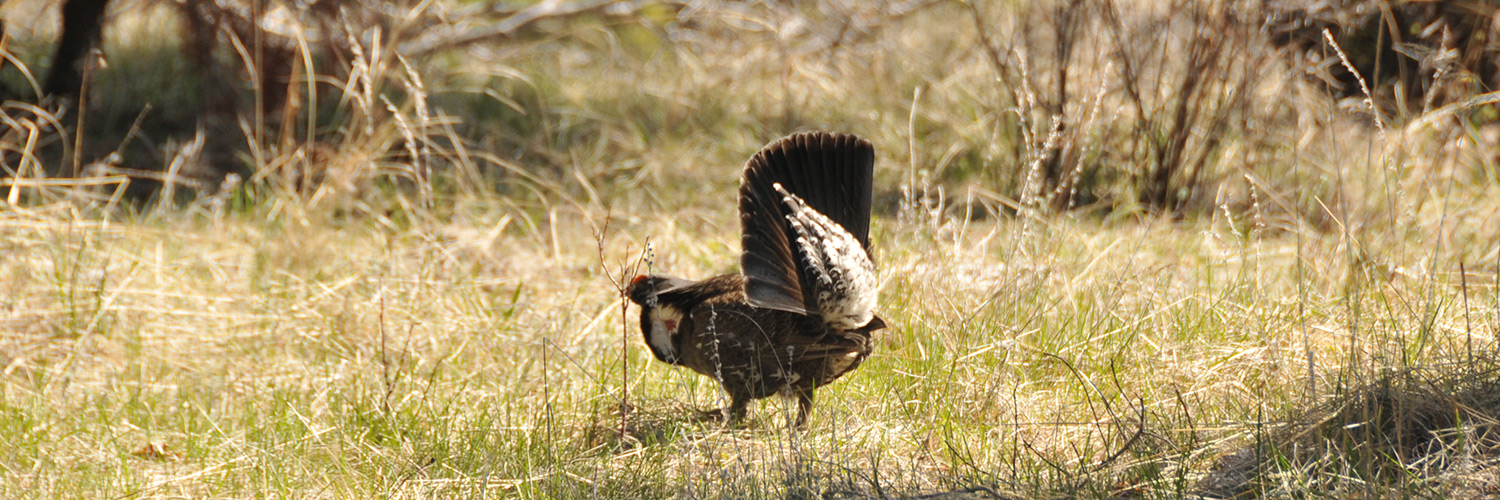Dr. Karen E. Hodges | Professor, Conservation Biology
Teaching awards
Outstanding Instructor, Faculty of Science, 2023-2024.
Golden Apple Award, for Supporting Learning Outside the Classroom, 2020.
“Thank a prof award”, 2015.
Regularly Offered Classes
Science Writing (Biol 313)
This course is for students who wish to develop strong and efficient writing skills in the biological sciences. Students considering independent study, Honours research, graduate school, or other advanced research training would especially benefit from this course. The goals are for students to improve the quality of their written work; to develop techniques for writing, editing, evaluating, and critiquing writing; and to learn the attributes unique to science writing and methods for writing fluent scientific prose.
Conservation Biology (Biol 422 / 513)
In this course, students learn the scientific basis of conservation biology. Students learn how to obtain and analyze demographic data, develop population models, and project extinction risks. Students develop an appreciation for the complex habitat, landscape, genetic and trophic interactions that affect population dynamics. We examine conservation approaches such as habitat planning, reserve design, surrogacy, and policy.
Take the biodiversity challenge:
How many species do you know? Current estimates of the number of species on earth range from the 1.6 million (or so) named species up into the 10s of millions. When I teach Conservation Biology, I invite students to submit a few slides on an interesting species or group of species, then I incorporate those slides into the lecture. There are many excellent sites with biodiversity information.–Please explore a species a day!
Spatial Ecology (Biol 401 / 512)
Ecological processes occur at particular locations. Spatial patterns influence ecological processes, and ecological processes affect spatial patterns. In this course, we examine patterns and processes and some statistical tools that are used in this research area. Topics include scale, disturbance, fragmentation, biogeography, metapopulations, landscapes, connectivity, and synchrony.
Directed Studies (Biol 452) / Honours Thesis (Biol 440)
These courses are designed around the interests of particular students. If you are an advanced undergraduate student with a focused ecological interest that might be suitable for a Directed Studies or Honours Thesis, please contact me well in advance of the term in which you would be interested in such a course to see if there is an opportunity. Topics of previous Directed Studies/ Honours include:
- Thermal ecology and climate refugia
- Global amphibian declines
- Otter populations in Singapore
- Foraging behaviour of geckoes
- Moth communities in grasslands amended with biosolids
- Analysis of animal movement data
- Critical habitat designation under the Endangered Species Act / Species At Risk Act
- Population models for population cycles
- Forecasting responses of species to climate change
- Owl and corvid diets in relation to habitat and biosolids amendments
- Kestrel nest site and diet selection in relation to biosolids amendments
Courses Taught Previously
The Culture of Science (Biol 502)
This course provides a thorough practical and philosophical grounding in the practice of professional research and ancillary activities in the sciences. Topics include: sources of funding and grant writing; scientific publication and peer review; scientific objectivity and advocacy; communicating with scientific and non-scientific audiences; application of scientific results to societal problems. The course is structured as discussions based on readings in each topic area. Students are evaluated on participation, leading discussions, and papers. Students are encouraged to find a relevant granting agency and develop and submit a grant proposal relevant to their thesis research as part of the class.
Introduction to Ecology (Biol 203)
This required course provided a foundation and overview of ecological topics. In addition to covering fundamental topics, we addressed hot topics of the day, both among professional ecologists and as topics hit public awareness. This course was replaced with Biol 201 starting in the 2013-2014 school year.
Introduction to Ecology and Evolution (Biol 201)
This required course provides a foundation and overview of ecological and evolutionary topics. I team-taught it during its inaugural run.
Fire Ecology (Biol 420T, special topics)
This seminar-style course was based on reading current literature on fire ecology. Topics included adaptations to fire, regeneration patterns, impacts of climate change on fire regimes, fire suppression, wildlife responses to post-fire landscapes, and post-fire management activities.
Integrated Approaches to Scientific Problems (Biol 503): Global Amphibian Declines
Biol 503 varies in topic and instructors every time it is taught. During fall 2008, I team-taught it. It was a seminar-style course based on readings from the primary literature.
